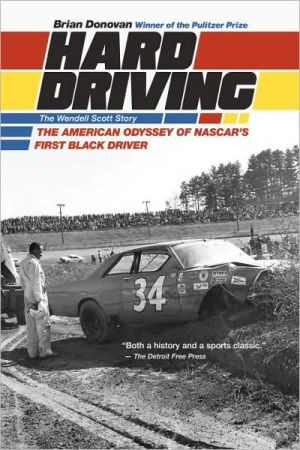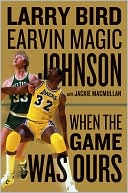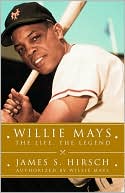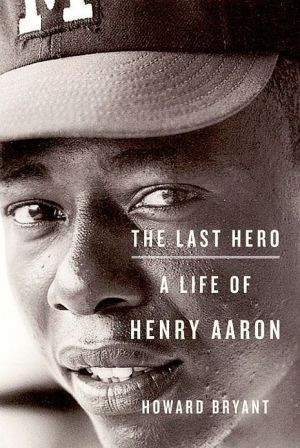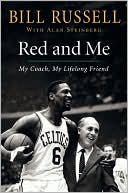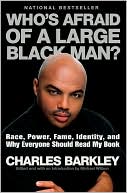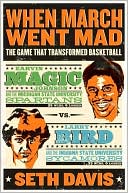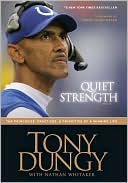Hard Driving: The Wendell Scott Story
Hard Driving is the dramatic story of one man’s dogged determination to live the life he loved, and to compete, despite daunting obstacles, at the highest level of his sport.Wendell Scott figured he was signing up for trouble when he became nascar’s version of Jackie Robinson in the segregated 1950s. Some speedways refused to let him race. “Go home, nigger,” spectators yelled. And after a bigoted promoter refused to pay him, Scott appealed directly to the sport’s founder, nascar czar Bill...
Search in google:
Hard Driving is the dramatic story of one man’s dogged determination to live the life he loved, and to compete, despite daunting obstacles, at the highest level of his sport.Wendell Scott figured he was signing up for trouble when he became nascar’s version of Jackie Robinson in the segregated 1950s. Some speedways refused to let him race. “Go home, nigger,” spectators yelled. And after a bigoted promoter refused to pay him, Scott appealed directly to the sport’s founder, nascar czar Bill France Sr.France made a promise Scott would never forget – that nascar would never treat him with prejudice.For the next two decades, Scott chased a dream whose fulfillment depended on France backing up that promise. Persevering through crashes, health problems, and money troubles, Scott remained convinced he had the talent to become one of nascar’s best. Hard Driving documents a previously untold chapter in the history of integration, politics, and sports in America. It reveals how France, founder of the multibillion-dollar nascar empire, reneged on his pledge and allowed repeated discrimination against Scott by racing officials and other powerful figures. It details France’s alliances with leading segregationist politicians such as George Wallace, the reluctance of auto executives such as Lee Iacocca to sponsor a black driver; and the inspiring support Scott received from white drivers such as nascar champions Ned Jarrett and Richard Petty, who admired his skill and tenacity.Publishers WeeklyIn this excellent biography, Donovan, a Pulitzer Prize-winning newspaper reporter and seasoned race car driver, recounts the overlooked life of Wendell Scott, the one-time Danville, Va., moonshine runner who broke the color barrier in stock-car racing in 1952 and competed for more than 20 years in a sport dominated by Southern whites. Scott, despite never having the backing of big automakers to put him in a top-notch car, finished many NASCAR races and season standings in the top 10. He won a Grand National event in Jacksonville, Fla., in 1963, a race in which officials initially tried to deny Scott the trophy because it meant he would be entitled to kiss the white race queen. Scott survived with soft-spoken manners, avoiding confrontation with those who resented him by driving conservatively to avoid collisions that would have raised the ire of white drivers and fans. He was an excellent mechanic who cobbled together subpar engines as best he could and often lived on the edge of bankruptcy. Donovan's writing is well-paced and measured, clearly depicting the complex atmosphere of race relations in the segregated South. His extensive reporting, including interviews with Scott before he died in 1990, combined with his descriptive and enjoyable prose about racing, make this book a deeply compelling story. (Aug.)Copyright © Reed Business Information, a division of Reed Elsevier Inc. All rights reserved.
Prologue 11 Didn't no black kids have no bicycles 72 I don't never want to punch no clock 143 A hard, nasty business 214 Judge, it couldn't have been me 285 Let me see how you doin' them turns 356 He had to be tough-skinned 417 I said, 'Well, I won the steaks 488 You're going to be knocked around 559 The more you do it, the more you like to do it 6410 He knew just how to hit me 7111 If he had the power, he'd come on at you 8112 We're movin' up 8913 They didn't want to use the word Wendell 9314 A standoffish position 9915 He hid the pain so well 10516 Man, I come a long way 11717 They took all the kick out of it 12718 I just knew Ford was going to do something for me 13619 How come way out here? 14420 We used to be the cleanup boys 15221 I'll get it done, Bill 16122 You're not gonna miss that li'l ol' wheel 16823 I'm going to show them 17624 The funds was just not there 18525 I know my place now 19226 We will not forget 19727 It was about wore out 20228 I'm gonna wreck him 21029 A chance to win one 21430 Just dreaming 22331 And the crowd laughed 23332 He put all his chips on the table 23933 What's the purpose? 24534 Business is business 25035 I couldn't drive like he drove 26136 I saw a different Wendell 27037 Hope for the best 277Epilogue 284Acknowledgments 289Notes 292Index 301
\ Publishers WeeklyIn this excellent biography, Donovan, a Pulitzer Prize-winning newspaper reporter and seasoned race car driver, recounts the overlooked life of Wendell Scott, the one-time Danville, Va., moonshine runner who broke the color barrier in stock-car racing in 1952 and competed for more than 20 years in a sport dominated by Southern whites. Scott, despite never having the backing of big automakers to put him in a top-notch car, finished many NASCAR races and season standings in the top 10. He won a Grand National event in Jacksonville, Fla., in 1963, a race in which officials initially tried to deny Scott the trophy because it meant he would be entitled to kiss the white race queen. Scott survived with soft-spoken manners, avoiding confrontation with those who resented him by driving conservatively to avoid collisions that would have raised the ire of white drivers and fans. He was an excellent mechanic who cobbled together subpar engines as best he could and often lived on the edge of bankruptcy. Donovan's writing is well-paced and measured, clearly depicting the complex atmosphere of race relations in the segregated South. His extensive reporting, including interviews with Scott before he died in 1990, combined with his descriptive and enjoyable prose about racing, make this book a deeply compelling story. (Aug.)\ Copyright © Reed Business Information, a division of Reed Elsevier Inc. All rights reserved.\ \ \ \ \ Library JournalWendell Scott broke the color barrier in stock car racing in the early 1950s, when the sport was firmly rooted in the South and America was still largely segregated. The racing establishment did little to encourage Scott and at times was antagonistic toward him. Unlike other sports, in which teams or organizations supported those crossing the racial divide, Scott regularly faced blatant bigotry, countless injustices, and chronic underfunding for his cars. Yet he persisted owing to a strong will and considerable talents as a driver and mechanic. Ultimately, he became a fixture in NASCAR racing in the 1960s and was not only popular with many fans but also achieved what by most measures would be an admirable racing record. This work by race driver and journalist Donovan is a thoroughly researched account of Scott's 22-year racing career, compiled from published sources as well as interviews with Scott, family members, and racing cohorts. What makes this compelling is the human drama interwoven with the racing narrative. We learn, for example, of the passive demeanor Scott felt he had to maintain around the racetrack to keep from inflaming any hostility around him, and of the rage he felt and acted upon whenever he thought members of his family were endangered. This important book is highly recommended for both motorsports and civil rights history collections.\ —David Van de Streek\ \ \ \ Kirkus ReviewsPulitzer Prize-winning Newsday reporter Donovan, now retired and a race-car driver, follows the hard-luck career of a man who challenged NASCAR's racial barrier in the 1950s. Growing up in the Deep South, Wendell Scott parlayed his early years as a police-dodging moonshine runner to become one of NASCAR's best, most reliable drivers. If he didn't finish with roomfuls of trophies to show for his two decades as a driver, it's only because he labored under incredible disadvantages, most notably a lack of financial support from either NASCAR officials or the major car companies that poured millions into the sport. He was forced to drive a beat-up old car that he often had to repair mid-race-and that was when he was even allowed to the starting line. In the South, where stock-car and auto racing had its roots, Scott was routinely banned from entering racetracks like Darlington and Talladega. When he was allowed on the track, bigoted drivers often intentionally wrecked him while fans harassed him with racial slurs. His fortitude and persistence knew no bounds. Using his sons and friends as pit crew, he competed for more than 20 years until a wreck nearly killed him in 1973. It was typical of Scott's bad luck that the wreck occurred in a brand-new race car that it took him 11 years to pay for. Donovan does an excellent job recounting the numerous roadblocks that were placed in Scott's way. Even when he won his only Grand National race (now the Sprint Cup series), officials initially awarded the checkered flag to someone else; he didn't receive his first-place trophy until a month later. Following the many other races in Scott's long career may prove less fascinating for the casual reader, butDonovan provides additional interest with his portraits of such major players of the period as George Wallace and NASCAR founder Bill France Sr. A memorable tale of an unsung American hero, and a worthy history lesson as well. Agent: Robert Guinsler/Sterling Lord Literistic\ \
